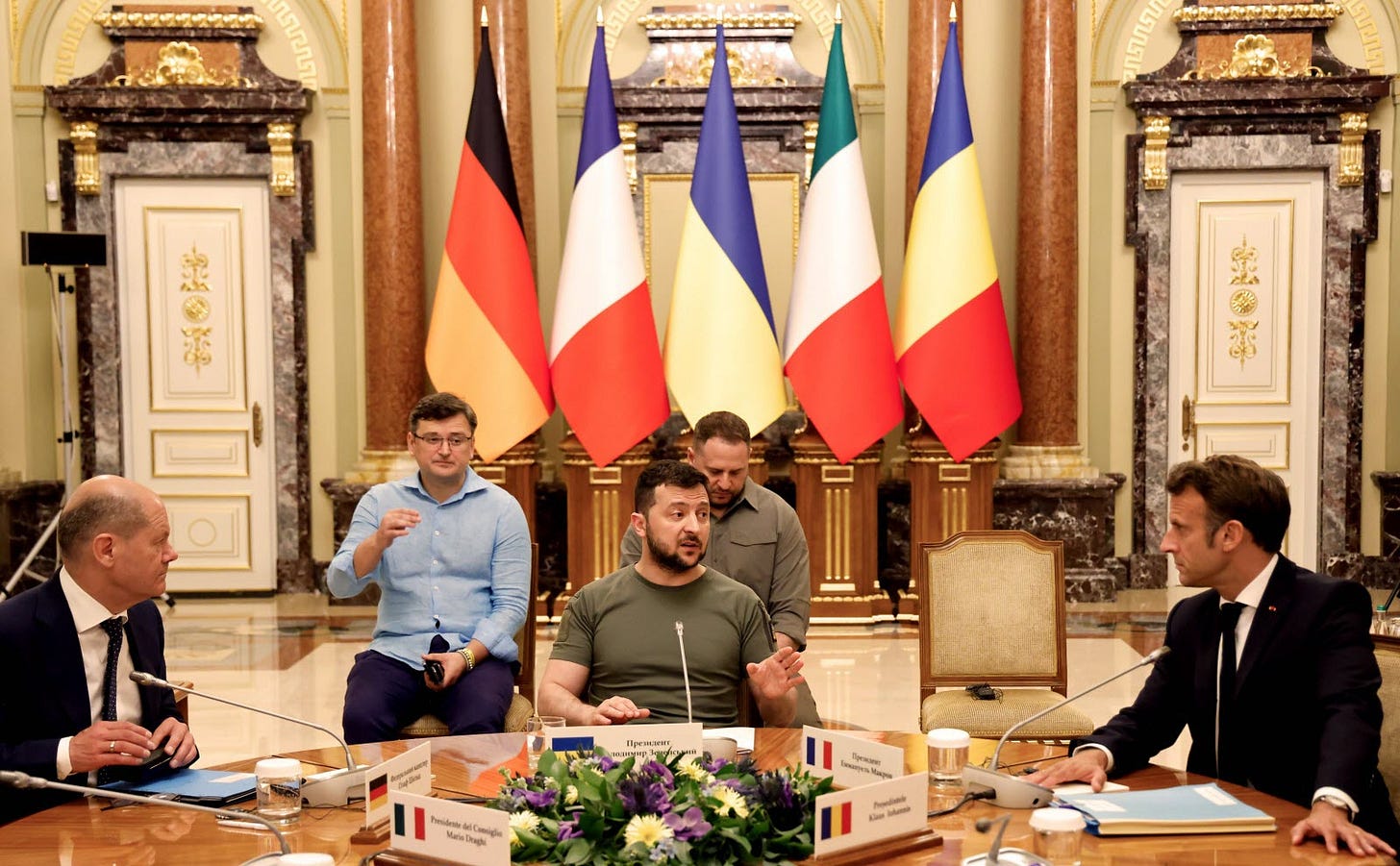Vladimir Putin’s Russia Remains on the Lookout for the Divisions That Are Appearing in Europe.
Europe must remain united behind massive support for Ukraine.
Last week, Olaf Scholz, Emmanuel Macron, and Mario Draghi went to Ukraine to meet with Volodymyr Zelensky. The aim was to reaffirm the support of Germany, France, and Italy to Ukraine which has been fighting for more than 115 days against the aggression of Vladimir Putin's Russian army.
This visit also aimed at announcing the support of these countries f…
Keep reading with a 7-day free trial
Subscribe to Sylvain Saurel’s Newsletter to keep reading this post and get 7 days of free access to the full post archives.




